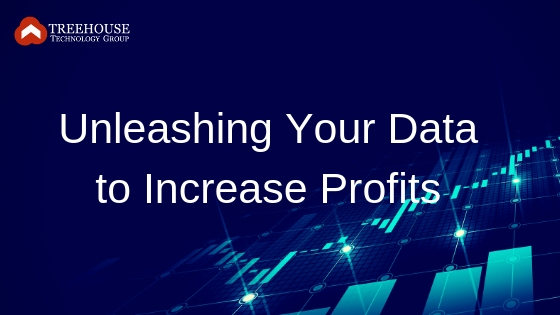Last year, American software company Monetate released a report exploring how personalizing business communications can benefit a company. The report included the results of a survey of more than 130 senior marketers at companies across the country.
Among the report’s key finding was that personalization efforts increase profitability. According to the report, 95 percent of those companies who saw three times the ROI from their personalization efforts also saw increased profitability last year. Additionally, 79 percent of those that exceeded revenue goals had a documented personalization strategy.
This report is one of several in recent years that demonstrate the power of personalization. And personalization efforts depend on data. Everyday companies collect reams of data from the businesses they work with and the customers they serve. But many don’t see the value of this data and its importance to increasing profits.
Data science is about more than collecting data. It’s about mining and analyzing the data for actionable intel. Personalized marketing and marketing campaigns in general are one area where data can lead to increased profits, but it’s just one of the many ways data science can be utilized. And those companies executing personalization effectively are seeing positive results.
Another 2017 report by market research firm Forrester found that 80 of companies who have adopted a data science platform are seeing more than 5 percent in revenue growth. And of those companies who have already adopted a platform, nearly 50 percent say growth and profits are exceeding shareholders’ expectations while another 64 percent say they are now leading in their respective markets and have a higher market share than their competitors.
Overall, companies that harness the power of their data are better equipped to make decisions. This can include decisions about when to release certain products and who to market these products to. But it can also include making decisions internally. For example, companies can use their internal human resource data to determine which employees are performing the best. This information can then be used in future hiring decisions to ensure the company is hiring the best candidate.
Data can also be used to eliminate waste in an organization. For example, a company can use inventory data to determine how much they’re spending on individual items, which of these items are contributing to revenue and which items are not. At a restaurant, this could mean analyzing the most expensive ingredients to determine if they’re being used in the most profitable menu items. In construction, it could mean determining whether more costly materials actually lead to structural longevity.
But despite the proven effect data science can have on a company, there are still a number of businesses not utilizing this resource correctly. Last year, market research firm Gartner predicted that 60 percent of data projects will fail. But according to a recent post on social media platform Twitter, Gartner analyst Nick Heudecker says the failure rate of data projects is actually closer to 80 percent.
That’s why it’s important to take time and care when implementing a new data project. Data science isn’t about implementing the latest technology for technology’s sake. It should be done with a specific goal in mind in order to produce the most concrete results.
Treehouse Technology Group takes your data and turns it into information you can actually use. We’ve worked with several companies to harness the power of their data. If you’re interested in gaining valuable insight and want to work with a company with a successful track record, contact TTG for a free consultation. We specialize in helping companies develop robust solutions best suited for their specific business needs.
